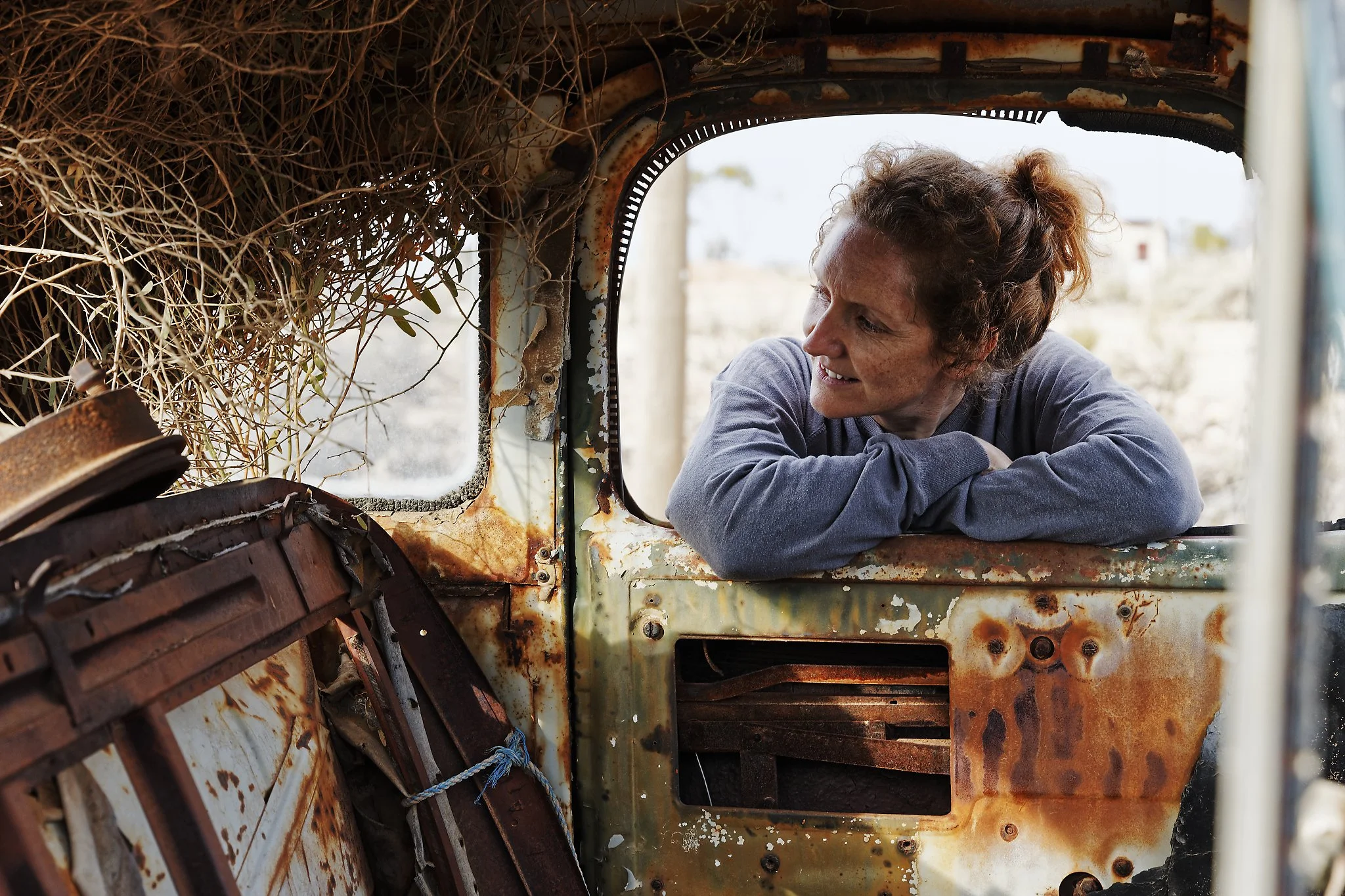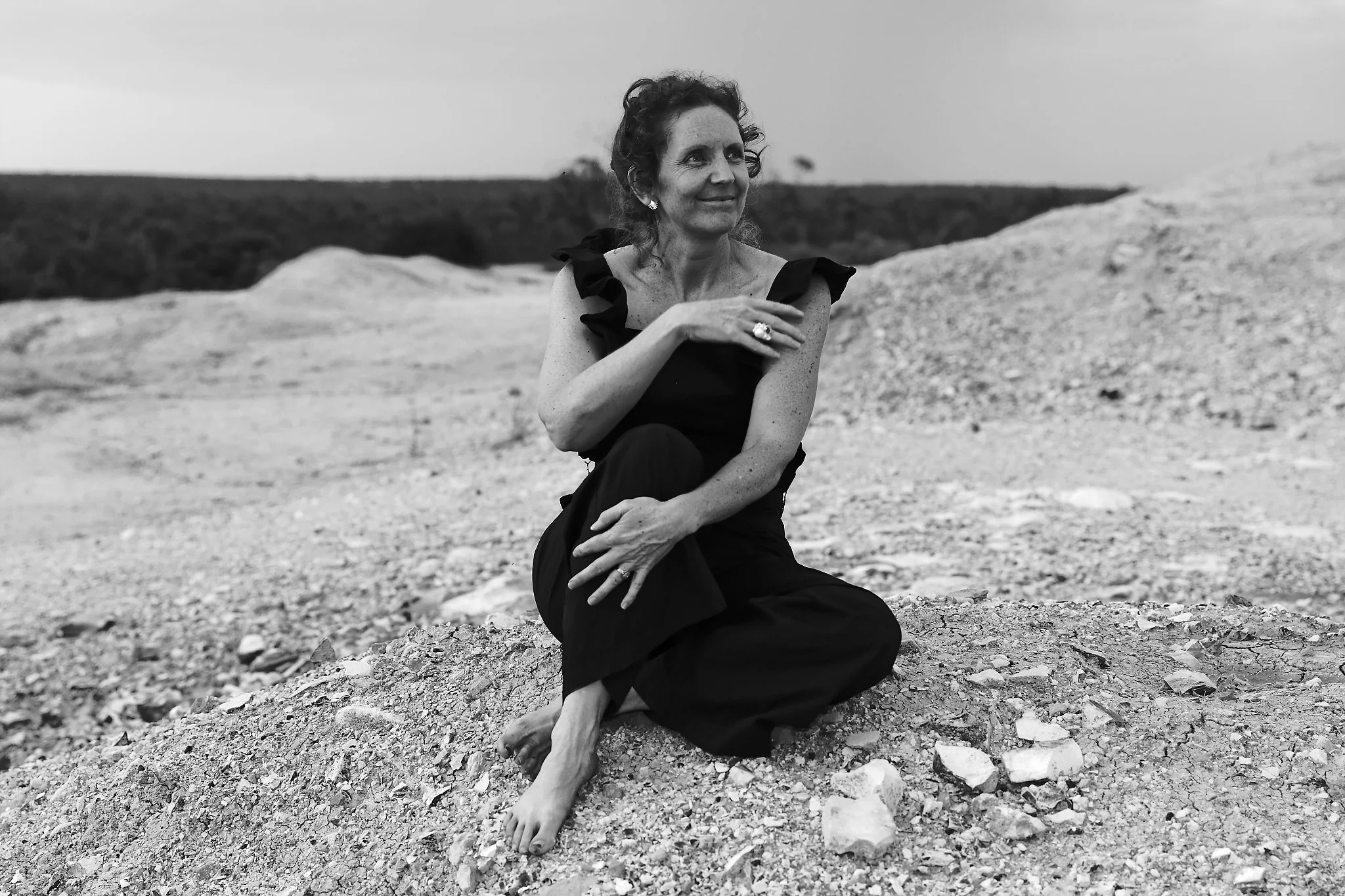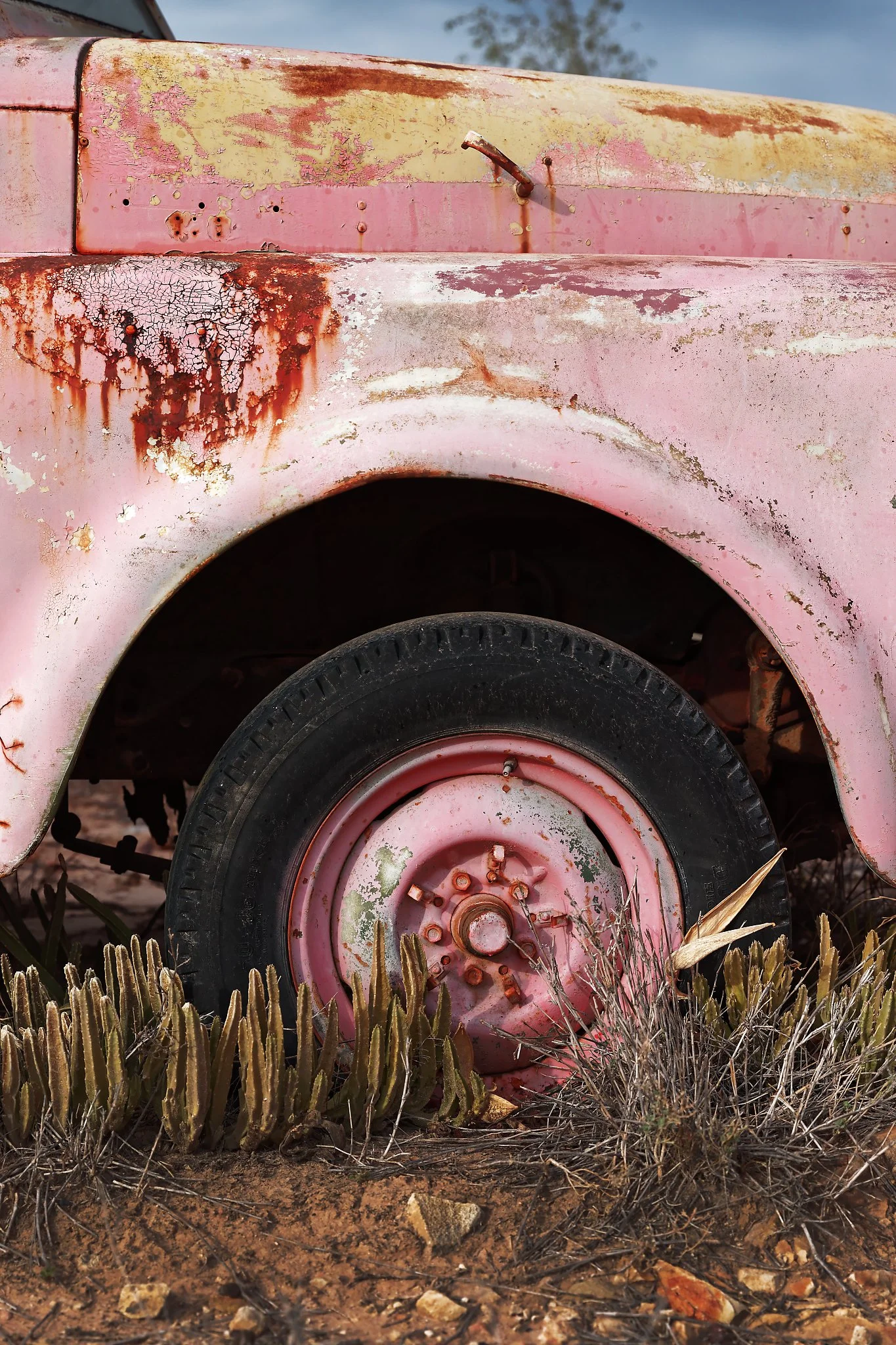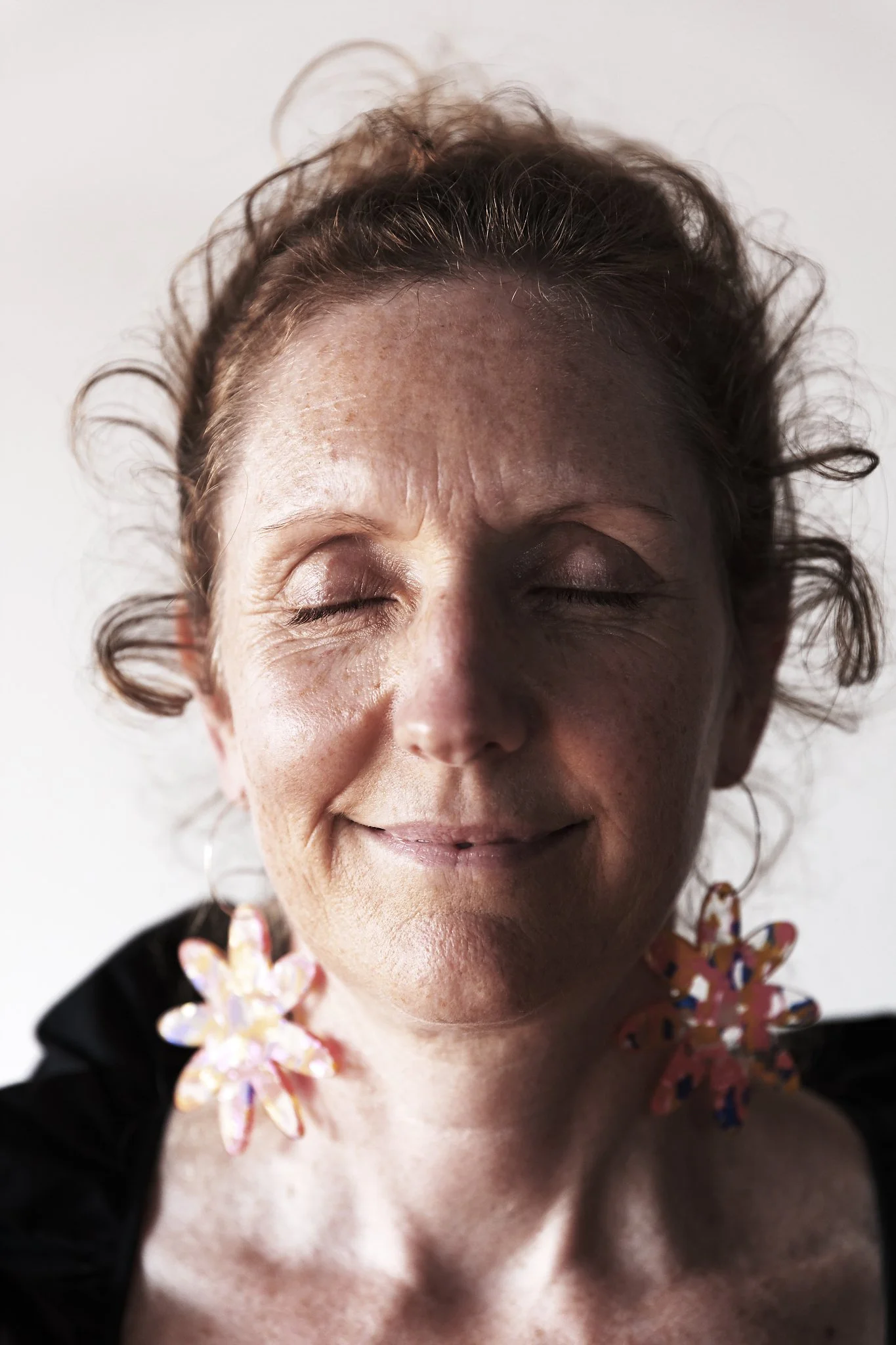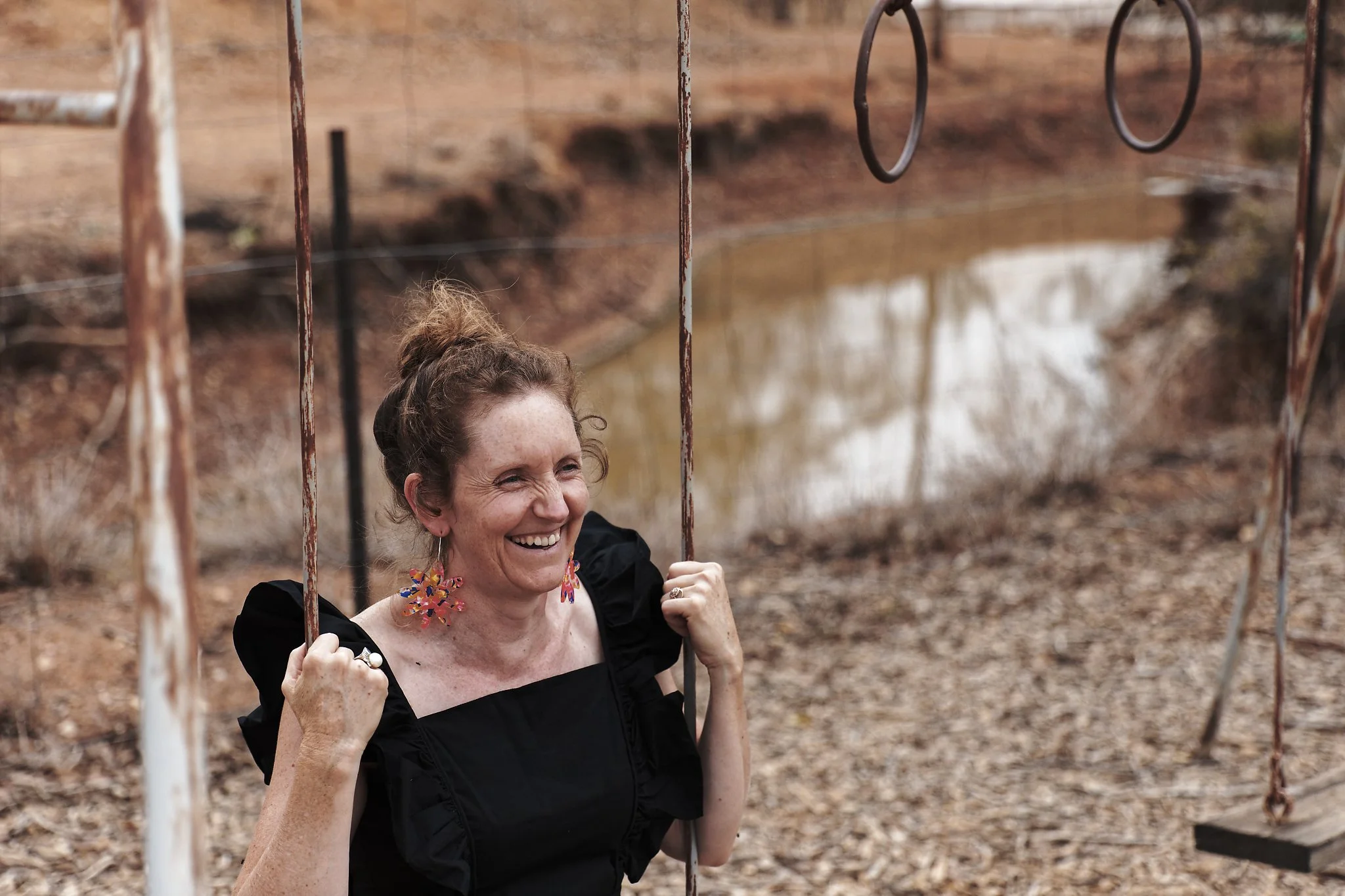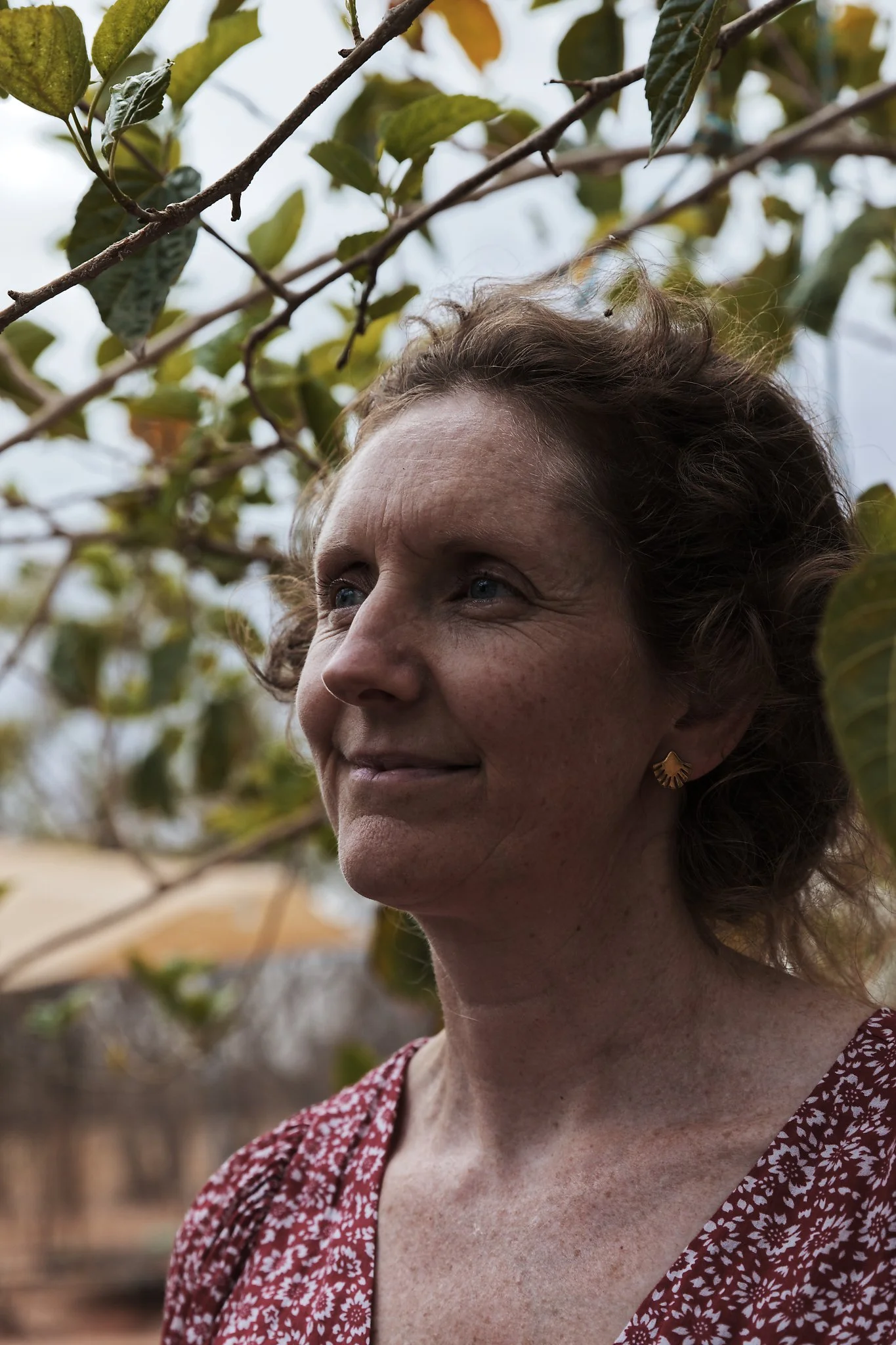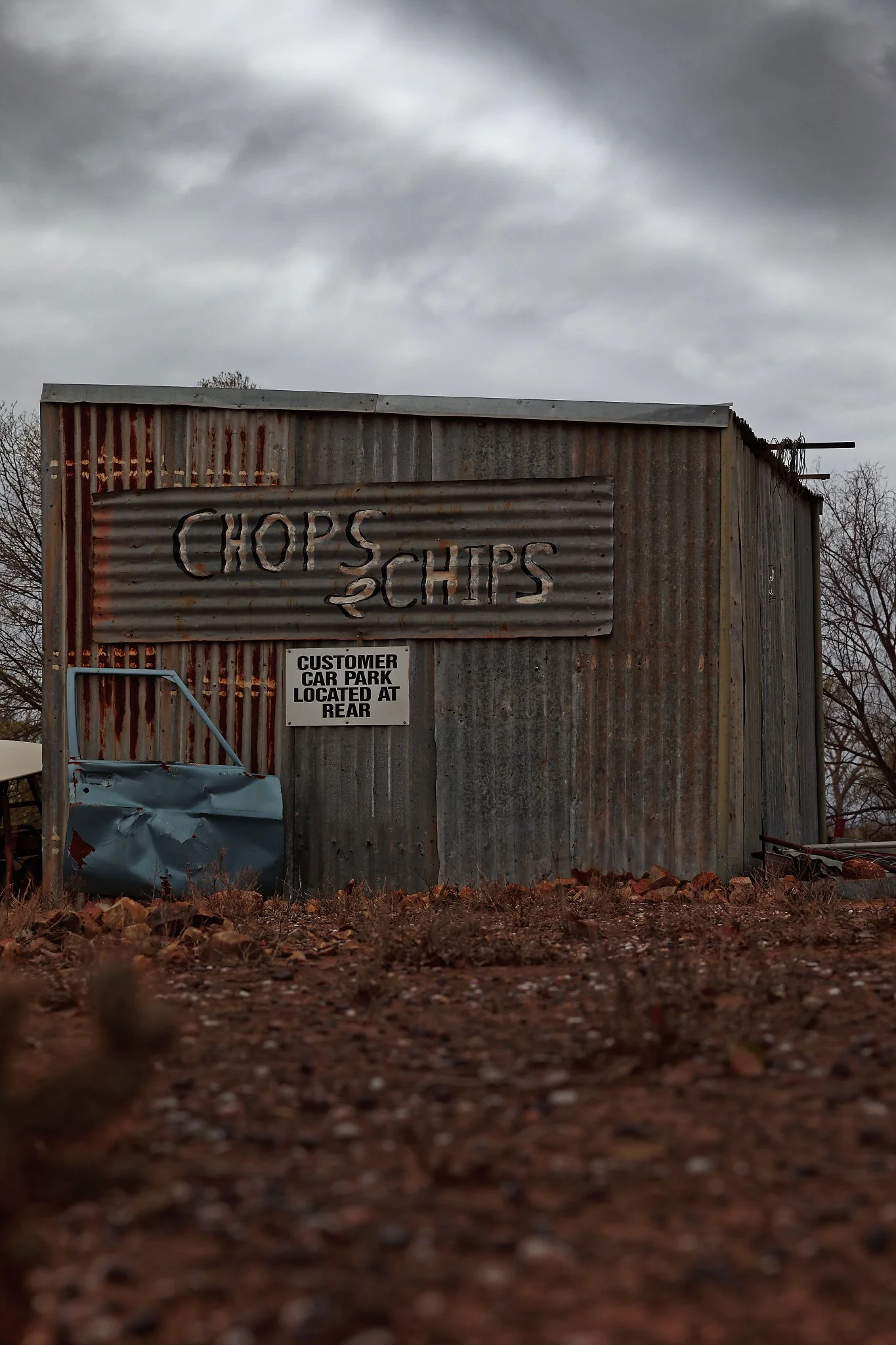Rebel Black
ARTICLE — Alice Armitage | PHOTOGRAPHY — Luke Burgess
Drive nine hours North West of Sydney and you’ll find what you might consider to be the absolute middle of nowhere, but in actual fact, it’s Lightning Ridge. With an unknown population, The Ridge is a town full of vagabonds and vagrants.
But I ventured out to see one particular rebel that’s been calling it home for the last twenty-five years. While most locals are out there in search of opal, Rebel Black spends her days as the founder of a tech startup. This platform to connect rural women is offering support services to tackle isolation, while providing access to opportunity in the regions.
I spent a few days in Lightning Ridge with Rebel, learning how truly isolating it is all the way out there and why she might just be the perfect person for the job she’s built for herself.
Your long term commitment to making a regional life for yourself and from such a young age, isn’t all that common for a young woman. How do you think your childhood shaped your direction?
I was born the eldest child to Leigh & Rick Black, farmers and graziers from Coonabarabran. My father and his father farmed together, so I was raised with a very generational experience. I had lots of exposure to my grandparents as well as my parents. I went to the local public school in Coonabarabran, in and out on the bus every day.
I’m really proud of my public school education, and I was blessed to be going to school at a time in Coonabarabran when we had brilliant teachers and great leadership. I had so many opportunities and I believe it’s still the same in that school.
A real sense of exploration and opportunity was instilled in me as a child. My parents just gave me permission to do everything, despite how challenging it must have been for them. They were so committed to providing us with the best education and the best opportunities, Coonabarabran was a great place for that. I was undeniably a high achiever and even though we lived regionally, I never missed out on anything. My rural upbringing was also very grounding for me.
Once school was over, what was next for you?
I went to university because that was the thing I thought I was supposed to do. I went to study Law and I quickly quit. Much to the dismay of many people around me, but I still stand by it being the right choice for me.
So instead, I went and lived in the Northern Territory and worked on a cattle station. I was a governess for a while, but I was sacked from that job. It was the only job I’ve ever been sacked from but I knew it was coming, so I had another job lined up.
When I turned twenty one I did feel I needed to be working toward some kind of career, but I had absolutely no idea what that should be. The only lead I had was that my grandfather was the chairman of the Board of Directors for Rural Press and he had always encouraged me to write. He let me know there was a job going as the editor of the newspaper in Lightning Ridge. I can still quote him directly: ‘look, they might take a punt on someone like Rebel’.
I had no qualifications and no experience as a Journalist. But historically it wasn’t an easy position to fill, so I sat a spelling test, I did an interview and got the job. I learnt at the end of my tenure that I had beat qualified journalists for the job, because they thought I might stay for longer. Until the end of that paper a few years ago, I was the longest standing editor – so they were right!
That was twenty-five years ago, I haven’t left Lightning Ridge since.
From there, how did you find yourself on the entrepreneurial path?
After a few years as the local paper’s editor, I left and started my own business as a freelance writer. Working for publications like The Daily Telegraph and Outback Magazine. I had feature articles appear in print in the UK and the US. I wrote for travel magazines — Australian Geographic — Sydney Morning Herald.
As always, I just went after every opportunity I could get. The Rural Woman is my fifth business, which I founded in 2014. I’d been doing some coaching, teaching and running online courses, but it just wasn’t really feeling like the thing. It was always my ambition to build something that had a legacy.
I woke up one morning and I just knew that I had to create a business that provided pathways for rural women to reconnect with their most powerful voice, and to provide a platform from which that voice could be amplified. But there was no prescribed solution. I simply wanted to offer a safe and sacred space that was accessible to any woman from anywhere. A space that would meet her where she was at with the support, inspiration, tools & motivation to activate her no matter her geographic location.
It’s been the easiest and the hardest working years of my life.
You’ve had a big transition in the business over the last few years ...
I have. The Rural Woman has been transitioned to a cooperative. We’re in our third year of operating that way and it’s been an interesting process. I essentially sold the business to the cooperative.
When I started The Rural Woman in 2014, I knew that it ultimately needed to be owned by the women it served, but I didn’t know how to make that happen. That always sat in the back of my mind and I built everything in such a community oriented way. Everyone was always involved in the design and delivery of everything that was created, working towards that end goal.
Over time the cooperative model kept coming up, I started to learn more about different opportunities, the sector and the cooperative model. I got together a group of colleagues and long-term champions of The Rural Woman with the intent of starting a cooperative that would acquire the business from me.
Given its foundation, the cooperative acquired a business that was already revenue generating and profit making. The cooperative now has members from all states and territories in Australia and that collective intelligence and insight is so valuable.
In hindsight, would you make the same choice again to move to a cooperative model?
The co-op is three years old, but it’s managing an eleven years old business which is an interesting dynamic but this model is a great option for founders who are community minded, or really want to see the legacy of their work live beyond a kind of commercial reality.
I feel good about the transition and I’ve remained the chairman of the board which allows me to continue to have influence and give guidance but I’m largely out of the operations of the business and now get to focus much more on strategy and development.
Something I’d love to delve into a little more is how you feel about an online platform vs. building in person connections? You built this software to enable connection, but do you think that an online forum can only go so far?
For rural women who live in geographic isolation, the internet and all its associated technology is an absolute lifeline. If it were not for the online access I’ve had, my path in life would have been very different. It saved my life being able to have access to online coaches, mentors, new ideas and ways of doing things. Technology is really pointless if we don’t believe it can serve us.
We have to nurture a new belief system that says I no longer have to be in the same room as somebody.
